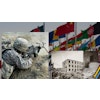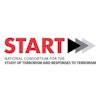Constitutional Struggles in the Muslim World
Universidade de Copenhague
Sobre este curso
Learn what motivates the restive Muslim youth from Tunis to Tehran, what political positions Islamists from Mali to Chechnya are fighting for, where the seeming obsession with Islamic law comes from, where the secularists have vanished to, and whether it makes sense to speak of an Islamic state.
Since 2009 there has been a renewed wave of popular unrest sweeping throughout much of the Muslim world. Secular, but generally repressive and inefficient autocracies have come under pressure or been swept aside entirely. At the same, the various Islamic Republics have not fared much better, but been convulsed by internal unrest, economic and social decline. Throughout the Muslim lands, existing constitutional arrangements are being challenged, often very violently.
This course is a survey of the constitutional ideas and institutions that have developed since the mid 19th century throughout predominantly Muslim countries, but its focus will lie on the actors that have dominated this discourse and shaped its outcomes. We will look at the large body of classical writings on the Islamic state only in so far as it is necessary to understand the contemporary debate, but concentrate on the legal and political developments of the 20th and 21st centuries.
Three common themes will characterise the course:
We privilege the study of the legal and social reality and seek to highlight where it is at odds with dogmatic stipulations, be they religious or constitutional.
We seek to illustrate the practical tensions posed by limited administrative capabilities and political legitimacy that resulted from the incomplete reception of modern bureaucratic statehood.
We seek to examine how popular dissatisfaction with the practical performance of Muslim governments has fuelled demands for greater accountability under the guise of cultural authenticity.
Ultimately, the course aims to equip participants to better understand Muslim contemporary discourse about the res publica, better contextualise the demands for religious law in public life, and to better ascertain the theoretical and practical feasibility of postulated religious alternatives to the still-dominant secular model of governance.
Legendas disponíveis em Inglês
8-12 hours/week
Programa
Semana 1
Overview: Presenting the Course
- Literature
- Lesson 1: Welcome and Introduction
- Lesson 2: Presenting the Region
- Lesson 3: Early Modern history
- Lesson 4: Unresolved Challenge of Modernity
- Lesson 5: Four Models of Adaptation
- Lesson 6: Indicators of Relative Failure
- Lesson 7: Role of Religion and Islamic Law
- Quiz on the Fundamentals of the Course
- Quiz: End of Week 1 Quiz
Semana 2
Ottoman Empire and Modern Turkey
- Literature
- Lesson 1: People, Place and Patterns
- Lesson 2: Ottoman History
- Lesson 3: Ottoman Reform: Tanzimat and Majallah
- Lesson 4: Creation of the Republic
- Lesson 5: Kemalism and its Problems
- Lesson 6: Westernisation and Islamism
- Quiz on Ottoman Empire and Modern Turkey
- Quiz: End of Week 2 Quiz
Semana 3
Egypt and Maghreb
- Literature
- Lesson 1: People, Place and Patterns Egypt
- Lesson 2: People, Places and Patterns Maghreb
- Lesson 3: Ottoman and Colonial History
- Lesson 4: Independence
- Lesson 5: Modernisation and Reform
- Lesson 6: Nasserism and its Problems
- Lesson 7: Westernisation and Islamism
- Quiz on Egypt and Maghreb
- Quiz: End of Week 3 Quiz
Semana 4
Saudi Arabia & The Gulf
- Literature
- Lesson 1: People, Place and Patterns
- Lesson 2: Ottoman and Colonial History
- Lesson 3: Patrimonialism and Religion
- Lesson 4: Rentier Economies and Administration
- Lesson 5: Impact of Rents
- Lesson 6: Paradoxical Alliance
- Lesson 7: Unresolved Contradictions
- Quiz on Saudi Arabia and the Gulf
- Quiz: End of Week 4 Quiz
Semana 5
Iran & The Shiites
- Literature
- Lesson 1: People, Place and Patterns
- Lesson 2: Imperial and Colonial History
- Lesson 3: Constitutional Revolution and Reaction
- Lesson 4: Nationalist Revolution and Reaction
- Lesson 5: Islamic Revolution and Reaction
- Lesson 6: Khomeini's Theory of Velayat -e Faqih
- Lesson 7: Unresolved Contradictions
- IRAN'S BIGGEST PROBLEM
- Tarefa: IRAN'S BIGGEST PROBLEM
Semana 6
The Levant (Jordan, Syria, Lebanon and Iraq)
- Literature
- Lesson 1: Taking Stock and Midway Summary
- Lesson 2: People, Place and Patterns
- Lesson 3: French Mandates
- Lesson 4: British Mandates
- Lesson 5: Order and Fractures Societies
- Lesson 6: Failure of Arab Socialism
- Lesson 7: Unresolved Contradictions
- Quiz on the Levant
- Quiz: End of Week 6 Quiz
Semana 7
Afghanistan, Pakistan and Bangladesh
- Literature
- Lesson 1: People, Place and Patterns
- Lesson 2: Colonial History of British India
- Lesson 3: Post-Independence: Pakistan and Bangladesh
- Lesson 4: Afghanistan: Creation of the State and 'Golden Years'
- Lesson 5: Afghanistan: Social Enigneering and Resistance
- Lesson 6: Failure of State-Building and Islamisation
- Lesson 7: Unresolved Contradictions
- Quiz on Afghanistan, Pakistan and Bangladesh
- Quiz: End of Week 7 Quiz
Semana 8
Malaysia & Indonesia
- Literature
- Lesson 1: People, Place and Patterns
- Lesson 2: Colonial History Malaysia
- Lesson 3: Colonial History Indonesia
- Lesson 4: Post-Independence Malaysia
- Lesson 5: Post-Independence Indonesia
- Lesson 6: Unresolved Contradictions
- Quiz on Malaysia and Indonesia
- Quiz: End of Week 8 Quiz
Semana 9
Sub-Saharan Africa
- Literature
- Week 9: People, Place and Patterns
- Lesson 2: Colonial History Muslim Africa
- Lesson 3: Neo-Colonial Legacies
- Lesson 4: Weak States and Institutions
- Lesson 5: Post.Independence Instability
- Lesson 6: Fractured Constitutional Bargains
- PERSISTENCE OF PROBLEMS
- Tarefa: PERSISTENCE OF PROBLEMS
Semana 10
Conclusion and Outlook
- Literature
- Lesson 1: Commonality and Diversity
- Lesson 2: Unity and Friction
- Lesson 3: Minorities
- Lesson 4: Legal and Social Reality
- Lesson 5: Practical Tensions
- Lesson 6: Popular Dissatisfaction
- Lesson 7: Good Bye
- Quiz on the Final Week
- Quiz: End of Week 10 Quiz
Inicie a sessão para inscrever-se neste curso
Financial Aid is available for learners who cannot afford the fee for this course. Learn more and apply.







Nenhum comentário:
Postar um comentário